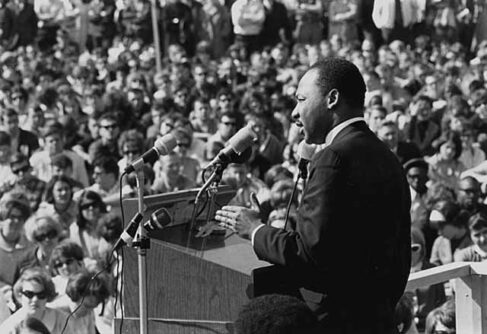Hume was a philosopher of the “Scottish Enlightenment,” the eighteenth-century period during which Scotland was home to leading scientists and philosophers. Scottish Enlightenment thinkers emphasized reason rather than faith as a guide in human affairs, the role of public utility in political affairs, and empirical experiments in natural science. In addition to David Hume, other figures of the Scottish Enlightenment include the political economist Adam Smith, known for his claim in his Wealth of Nations that by following our self-interest we are led as by “as though by an invisible hand” to serve the common good; the mathematician John Playfair, who published a rigorous formulation of Euclid’s postulate that parallel lines never meet; geologist James Hutton, who theorized that the Earth’s surface changes very slowly over time; and chemist Joseph Black, who discovered that different materials have different heat capacities.
Scotland’s vibrant intellectual milieu at this time encouraged the development of new theories of human nature and morality that prioritized no-nonsense traits like practical reason, thrift, usefulness, and cheerfulness. Hume’s theory of moral virtue is the most influential of these new theories of human nature and morality.
Hume presented a new catalog of moral virtues in An Enquiry Concerning the Principles of Morals, published in 1751. Hume’s catalog is remarkably short: it includes just benevolence and justice (elsewhere, as in his History of England, he considers also the virtue of “greatness” available to a few outstanding men like William III, who deposed James II in the Glorious Revolution of 1688 and went on to expand religious freedom in England).
Hume begins his account of moral virtue with benevolence. Benevolence is the sentiment of wishing “to promote the interests of our species, and bestow happiness on human society” and generally to be “useful” to others. Properly developed, this sentiment is informed by reason to “ascertain . . . the true interests of mankind” so that we, for example, give alms only so far as to relieve the indigent and not to encourage idleness.
Were the scope of human affections large enough, Hume supposes that benevolence would be the only virtue necessary. However, because we are partial to our family, friends, and neighbors, we must supplement benevolence with justice, which serves public utility by seeing that each gets his fair due even when benevolence does not prompt others to give it. Hume thus calls justice the “jealous virtue” that counteracts the desire to keep things for oneself and one’s friends and family. Benevolence and justice make a pair; when benevolence cannot provide for social utility, cold justice ensures that social utility is served.
At least two things are striking about Hume’s virtues of benevolence and justice. First, these virtues are thoroughly social, exercised only in reference to other human beings. Robinson Crusoe could not exercise either Humean benevolence or justice because he cannot be useful to others. Second, these virtues are therefore fundamentally contextual -- what counts as benevolence or justice depends entirely on what is “useful” to others in their social context. This contextual character of Humean virtue has given rise to the accusation that Hume is the origin of modern relativism and the view that what is “good” depends entirely on context and opinion.
In contrast, other, earlier catalogues of virtues describe virtues that can be exercised alone and supposed to be grounded in a truth that is independent of context. For example, the classical Greek virtues — justice, wisdom, courage, and moderation — were understood as states of soul achieved through education and were grounded in what was thought to be the unchanging Good in the cosmos. The Pauline virtues of faith, hope, and charity are grounded in Christianity. While Robinson Crusoe could not exercise any Humean virtues, he could exercise virtues from these other catalogues of virtues.
The Humean notion of benevolence is widely shared today in American society, including in the nonprofit sector, and motivates many philanthropists. But it is but one account of benevolence that helps to explain motivations in our large American volunteer and nonprofit sector; one way of studying the nonprofit sector is to consider the range of notions of benevolence that motivates this wide, varied sector.






44 thoughts on “David Hume and the virtue of benevolence”